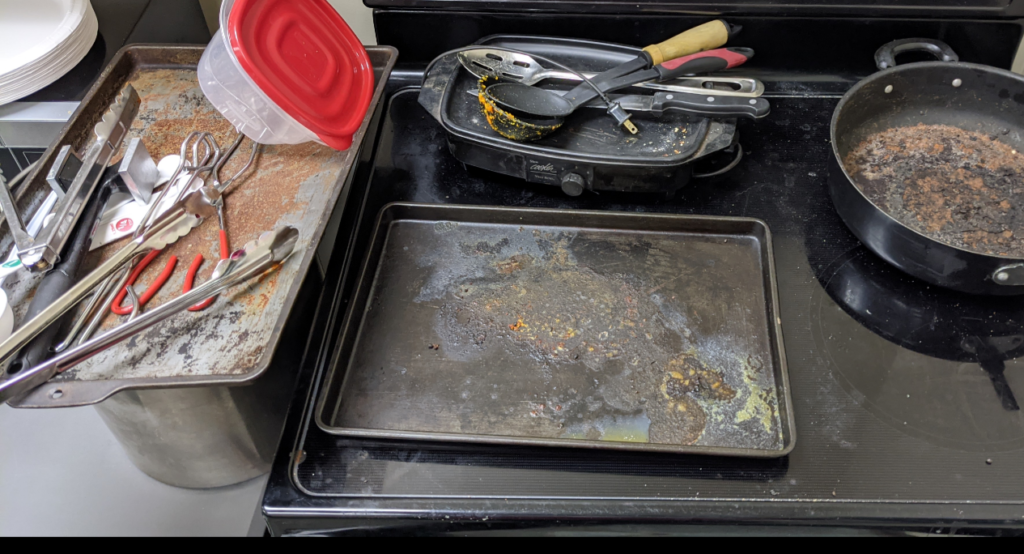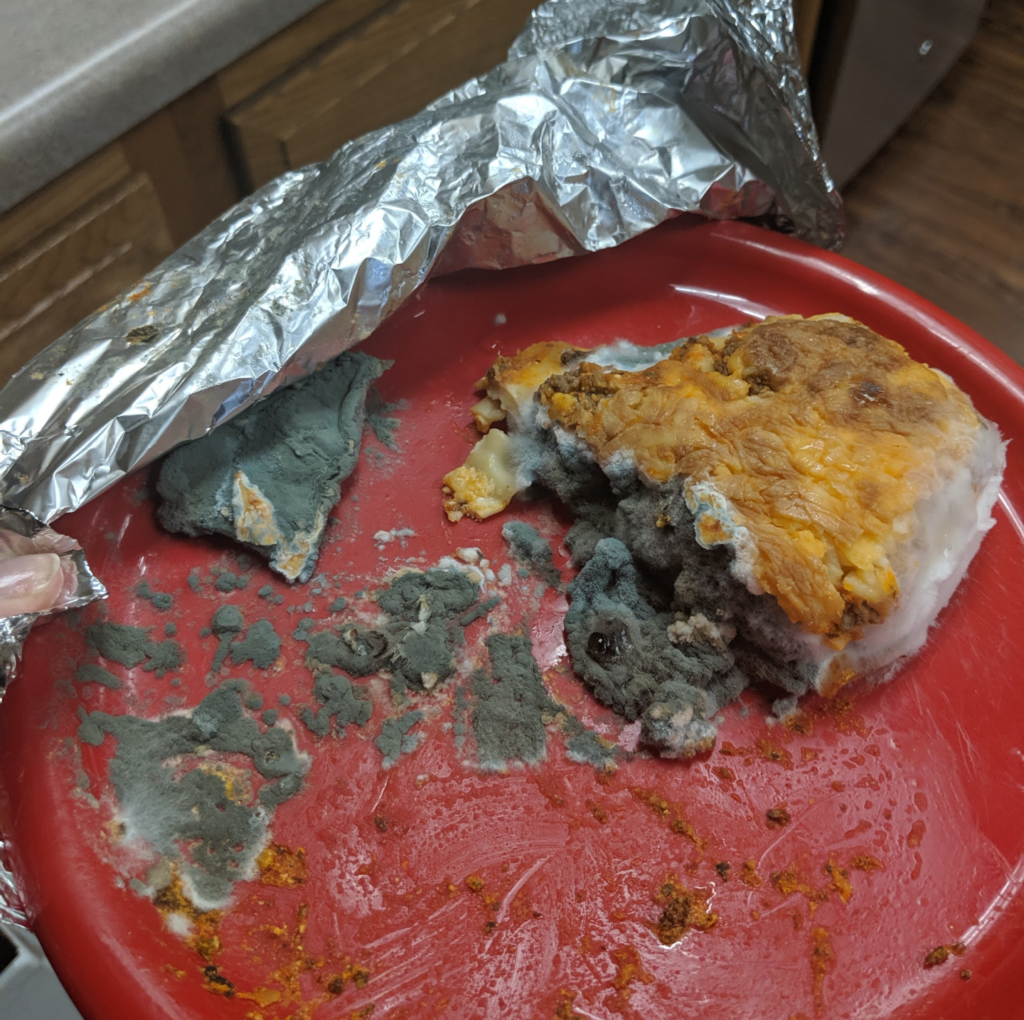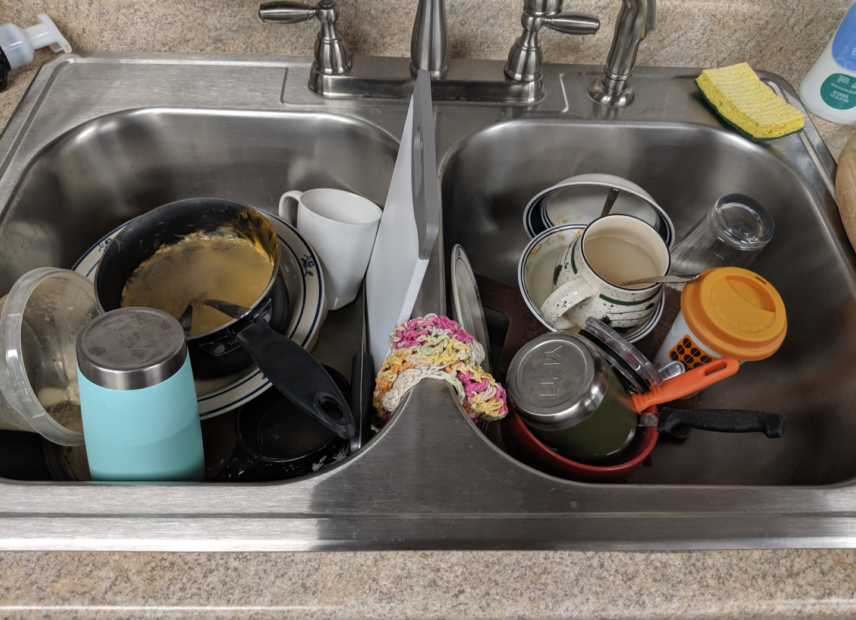I once had a Doctor’s Office call to come bid their cleaning.
“We need a cleaner once a week on Tuesdays between 10am and Noon. Can you tell me how much that will be? You’ll need to start this week.”
Like tomorrow, this was late Monday morning. Now I’m not saying we can’t get a bid in, approved, and start the next day in some cases. I’m just saying it takes a highly organized and motivated contact for that to happen, but I digress.
I was very well-behaved in retrospect. I neither sighed at her nor did I laugh out loud. I simply said, “When will someone be available for me to come take a look at it?”
If you are a fellow BSC, you get why this is funny in a very frustrating way. If not, allow me to explain: Cleaning, which is a crucial component of protecting not only the health and safety of your employees, but also the long term viability of your facility is often forgotten, marginalized, or downplayed. The work we do is skilled and vitally important, yet people still have some crazy conflicting ideas. Such as “cleaning should be cheap, if not altogether free. You should be able to clean entire messes at the drop of a hat, but also why is it so expensive? You weren’t here long enough, you couldn’t have done a good job, but also, how long could it take anyway?” The list goes on.
She replied, “Well, there are only psychiatrists on site, no office staff. There are 6 of us. We share office space. We each see patients in the same house that’s been converted into an office. No one can really take the time out to meet with anyone. It’s just dusting, you know, cleaning a bathroom, vacuuming if it needs it, pulling trash” — then she said the words — “and doing the dishes.”
I told her, “I’m sorry, we don’t bid anything sight-unseen. If no one is available to let me see the space and talk about your cleaning needs, I won’t be able to give you a price. Additionally, we don’t do dishes.”
She was not to be deterred. “We need you to start Tuesday. (Again, the very next day, but okay, we’ll call it Tuesday) I’ll be seeing patients today. I’ll leave the door unlocked between 1:00-2:00. You can come in and look around, just don’t come in my closed office door.”
I can’t even imagine what made me agree to this.
The address was not far from my office. As I approached the door I saw various pages of detailed directions taped up in report cover plastic pouches for how to gain entry to the building – but only if you were there for an appointment – and it had to be no more than 5 minutes before or 5 minutes after your scheduled time – and no one ever was allowed to come inside with the patient – and if you are a caregiver and won’t be in the session, you’d have to wait outside – unless you were here for Dr. So-and-So he allowed visitors to wait – and no payments were received here and no cash kept onsite – this was all very reassuring. I can’t imagine how I’d feel up against this daunting door as a patient. However, as promised by the caller, I did not have to hold my breath, spin around twice and use a secret knock, the door just pushed right open.
This space had sort of been converted from a home into an office, maybe? Clearly it had not been cleaned in a long time. So much dust on the edges of the very red carpet it looked gray. Cobwebs in corners and windows. Dead bugs on the floor surrounding dead plants. Rings in the bathroom toilet. Trash containers overflowing.
AND A GIANT MOUNTAIN OF DISHES.
Dude. I am so sorry I did not snap a picture of it so you also could enjoy my amusement. Words do not do the memory of it justice. Six doctors, all certain it was someone else’s job to clean up after them. Too many chiefs, no Indians. Months worth of dishes plus all the various plastic containers and cups and water bottles and mugs teetering like a festering uneven Jenga tower.
I left, sent her an email with a price including a one-time clean to get it up to speed, then weekly maintenance cleaning, minus dishes and waited. This is where experience comes in. 2022 me? Never would have even gone to look, let alone bid it.
As expected, she called not 5 minutes after her appointment ended. She blurted, “I never really considered your price might be so high. I’ll have to talk to the other doctors. Why didn’t you include dishes? Is it more for that? Seems awfully high to not include the dishes. They’ll definitely have to be done”
I declined. She said she’d get back to me.
She never did. Surprise!
What my poor frazzled potential customer did not ever ask in her rush was “Why don’t you do dishes?” Given some of her other behavioral clues, I don’t think she would have understood or accepted my reasoning anyway. Bullet dodged.
At the time, I would have said something along the lines of, “You hire a commercial cleaner to maintain your facility for it’s long term viability and to provide your employees and customers with a clean building in which to work/receive services. You do not want to hire a cleaner to clean up after your employees personally. It’s not cost effective and encourages less respect for the space in the long run making it dirtier and reducing the amount of actual care my company can provide for the agreed upon amount.”
Flash forward.
After working in this field another decade or so, I certainly have a more solid base of experience to back up why I still ain’t doing your dishes.
As a company we moved into our niche of 3 to 5 day a week, large-scale, rurally-located industrial facilities and away from the once a week small office cleanings. We still have some, of course, it’s just not our main focus. Following is a specific example of a time when we have sort of, almost but not really, it’s not the same, I swear, made an exception and may have perhaps done a dish, maybe several, but they don’t count because it was for the greater good, I promise and definitely not forever.
While training a new Account Manager, I took him along to observe how I interacted with potential clients on bids and then we discussed the bidding process after. He was fairly well-versed in our policies. Part of training for any advanced management position for our company is first working as an entry level Cleaning Team Member before progressing to a Cleaning Team Supervisor, no matter your experience. So he really had a solid basis of the why and how of the work we do. When we got back to the office he said, “I was a little surprised you didn’t address their dishes with them. She asked you to do them, yeah? That’s not something we ever do, right?”
I replied, “Oh, their dishes are just a very small symptom of much larger growing pains. As a general rule, we don’t do dishes, but this is going to take a minute to fix. We might be doing their dishes in some form at least at first.”
He was perplexed, and maybe a bit overwhelmed? This break room was a mess. Cake on the floor that no one bothered to clean up, then someone stepped in leaving sticky icing footprints, stacks of old newspapers, overflowing trash. And she did ask on the walk through that if the dishwasher is not full/not running, we load. If the dishwasher is done, we put away the clean dishes. Both sides of the sink, full of dirties. Kitchen cabinets stuffed full of various dishes, leftover take out boxes, a full set of ceramic dishes provided by the owners, holiday themed service pieces, and about 3000 mugs. Counters covered in mismatched plastic containers, moldy plates of food half covered, leftover catering foil pans and so many plastic grocery bags. I bid them in June, signed them two weeks later, made zero mention of dishes. Oh how the times have changed.

Dude, did you eat food cooked in that pan?

Just hanging out on a counter under a pile of plastic bags…
A brief word about bidding. I long ago dismissed bidding calculators and cleaning time charts as our primary source of bidding information. Of course I still have them. Occasionally, on a particularly detailed job I will run my bid through the process just to make sure I’m in the ballpark but for me, bidding is a little bit experience, a little pixie dust, a little intuition, a healthy dose of listening to what the building usage patterns tell me and a pinch of magic when putting it all together.
Bidding is the secret sauce between what your customers say they want and what the evidence tells you the customer actually needs on the walk through. Being able to see where they are now and where they can end up with a properly managed cleaning program is key. Then if you manage to make those things jive enough price-wise for you to get the nod, you change their lives without them ever noticing it happened.
The magic comes from walking through, observing how the employees use – or abuse — the space, talking to whichever gatekeeper the cleaning has been handed off to (my word, that’s a whole other post) then crafting a bid that gives them what they need at the price the person who pays the bills is comfortable with and just for kicks, that person is almost never the one escorting you through the building.
I know, I know. I’ll bet you are thinking, “Hold on a minute Mrs. Hunt! Both places were neglected. Both places were over the top dirty. Both places asked you to do dishes. What gives?”
The difference lies in the way each contact approached us.
- The first office was disrespectful of our time by waiting until the day before the service needed to be completed to contact us. I am reminded of the quote, “Lack of planning on your part does not constitute an emergency on my part”
The second office called in advance and requested a consult for service to begin at the end of the month. We made an appointment for two days after the call leaving the better portion of the month for the bidding process.
- The first office stated that no one on property was able to make time to meet with us to discuss their needs. She gave a vague list of general cleaning tasks because she did not understand the importance of cleanliness as it relates to protecting their investment in their building.
The second office scheduled a guided walk-through, and included a brief stop with company ownership. She provided a list of their general requests as well as the site list of their current cleaning company with areas highlighted that they did not feel were being addressed and items crossed off that they did not feel were a priority. She was open to discussing what services we felt were important to provide them, whether they were on her list or not.
- The first office felt that cleaning up after themselves was beneath them, as if their time was too valuable for that – and therefore, they viewed our staff and the services we provide as beneath them and not valuable. Yeah, I don’t think so Tim.
The second office came to us with a problem. They knew that they had an employee behavioral issue and requested our help in addressing it. They approached our company as fellow professionals seeking a solution.
The second scenario has a happy ending. (I mean, I guess both were happy endings for me…) We brainstormed together, scheduling their 3 day per week service to run on evenings Tuesday and Thursday while their warehouse staff was still onsite but the offices were closed and on Saturday while no employees at all were onsite so that we would have uninterrupted time to address bigger projects and deep cleans. Each weekend for the first month we detailed a different section of the building, at an additional charge for hours over and above their regular cleaning service time.
The first weekend was a big honking overhaul of their kitchen. We washed every dish. Emptied every cabinet onto the counter to take stock of what was there. Tossed every disposable take out container. Matched containers to lids. Tossed lids/containers without mates. Wiped out cabinets. Replaced shelf paper. Reordered all the cabinets to designated items: i.e. all matching plates/bowls/cups in one, all matching drinking glasses in another, these cabinets were labeled for client usage only. The next grouping was non-matching employee personal items including mugs/glasses/bowls/plates/containers. In the lower cabinets we grouped catering items, serving platters and bowls. Holiday themed items were grouped and stored above the refrigerator. Every cabinet had a printed label on the corner near the knob. One drawer held the all-important take out condiments. The coffee drawer held hundreds of sugar/creamer/sugar substitute packets, coffee stirrers and disposable lids. Grocery bags were tied into loose knots and stored in another drawer. One was all plastic wraps, Ziploc bags and foil. We took out every single tea towel and dish rag, washed and returned them folded to their designated labeled drawer on the next service day. Tossed and replaced all their sponges and scrubbers and placed a bottle of antibacterial dish soap that we refilled each week. A MASSIVE undertaking to be sure, but so needed and appreciated.
And that really is the key. Your employees will respect an area that you as the owner deem worthy of respect as well. Once a space is cleaned, for the most part (I mean, oil and gas sites don’t count) no one wants to be the person who is seen messing it up. Folks love a clean office to spend their day working in. Once we organize a space with appropriate positive labeling and signage and it is clear that someone is caring for it, your staff with automatically begin treating the area with more respect as well. If we only rolled in and washed the dishes, without the underlying organization and effort, more people would learn that someone else is going to take care of it resulting in our staff spending more time cleaning up after your employee’s personal messes and less time maintaining the long-term viability of your facility. We are here to protect your investment, not as a personal maid service.
We still don’t do our customer’s dishes. However, in the intervening years, I have learned that it is much better to fix the underlying problem by saying Yes! initially, rather than an outright No!! which solves no problems.
What about you? Any other dish-non-doers out there? What types of service do you get requests for that you prefer not to provide? And why? We’d love to hear from you.
For more cleaning content like this, including what has worked in our geographic area, join our Private Facebook Group, What Your Cleaning Lady Knows.
© Mrs. Hunt and What Your Cleaning Lady Knows, 2022. Unauthorized use and/or duplication of this material without express and written permission from this site’s author and/or owner is strictly prohibited. Excerpts and links may be used, provided that full and clear credit is given to Mrs. Hunt and What Your Cleaning Lady Knows with appropriate and specific direction to the original content.
